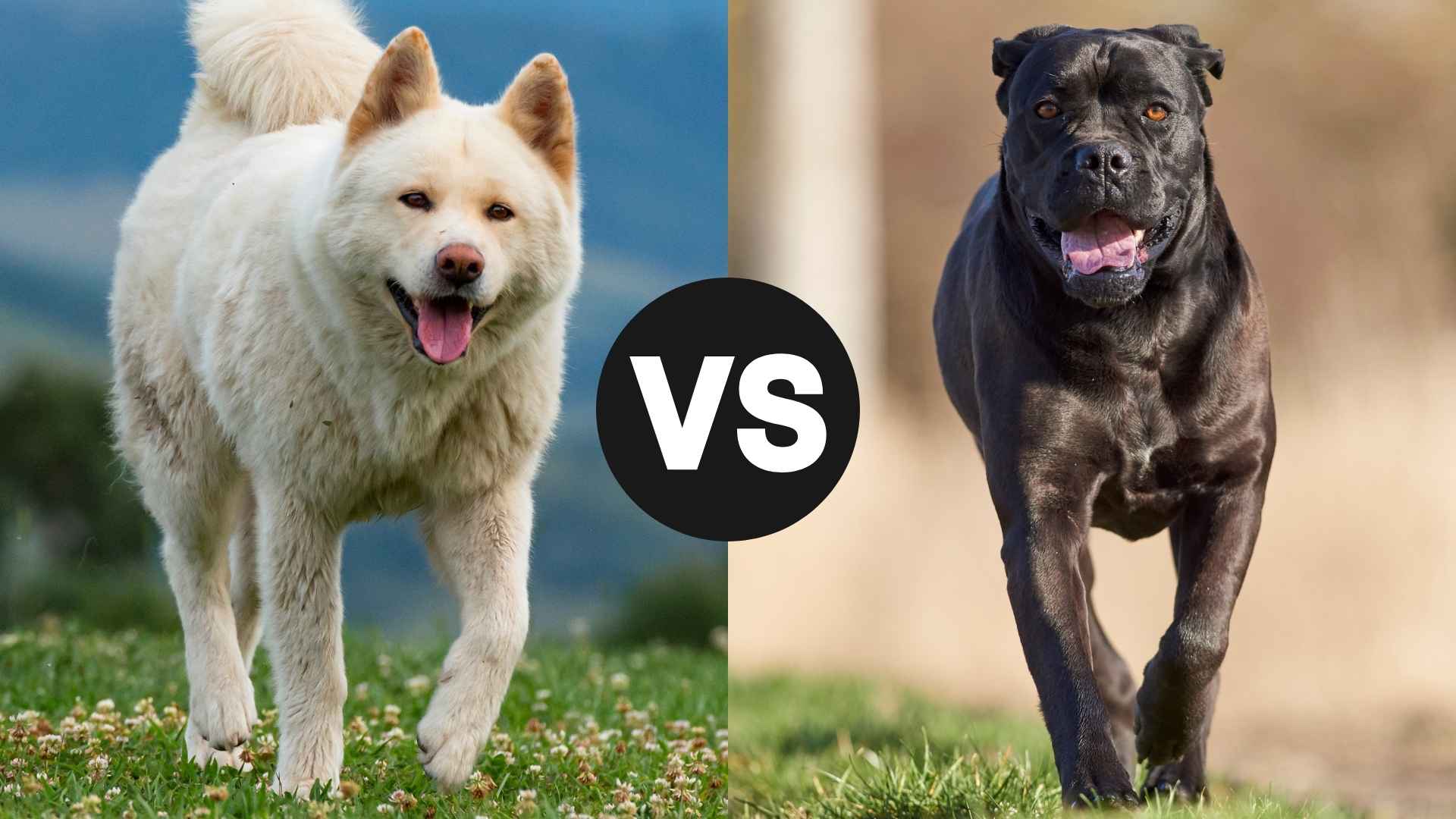When it comes to choosing between the Akita vs Cane Corso, you’re looking at two impressive dog breeds known for their strength, loyalty, and protective instincts—but that’s where the similarities end. The Akita, a dignified breed from Japan, was originally bred for hunting and has a plush double coat, curled tail, and a bold, independent personality.
These dogs are loyal but often aloof, making them a better fit for experienced dog owners. On the other hand, the Cane Corso, hailing from Italy with roots in ancient Rome, is a massive working breed known for its muscular build, calm confidence, and natural guarding instincts. Despite their intimidating look, Cane Corsos can be gentle and affectionate with proper training and socialization.
If you’re considering one of these powerful pups, this guide will help you compare temperament, care needs, and suitability for your lifestyle in the ultimate Akita vs Cane Corso breakdown.
Akita vs. Cane Corso
The Akita hails from the mountainous regions of northern Japan, where it was originally bred in the 17th century to hunt formidable game like boars, deer, and even bears. Revered as a national treasure and symbol of good health and loyalty, the Akita is deeply embedded in Japanese culture, according to Britannica.
Fun Fact: Akita’s loyalty is most famously represented by Hachiko, the dog known for waiting nine years at a train station for his deceased owner.
The American Akita, with its Spitz roots, is calm, reserved, and fiercely loyal. Akitas are muscular, strong-willed dogs. Their loyalty is unmatched, but their independence and dominant nature make them best suited for experienced owners.
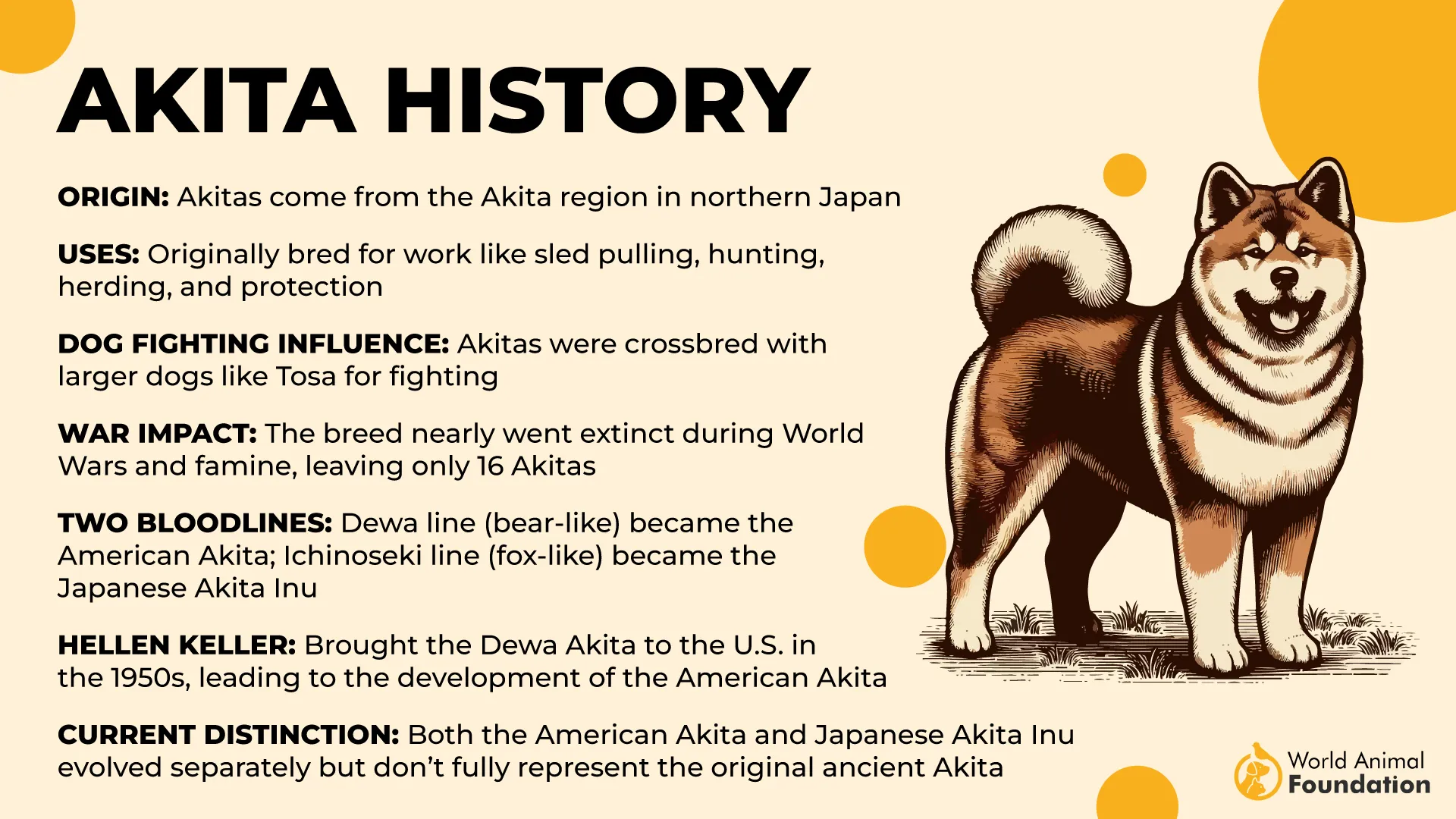
In contrast, the Cane Corso, descended from ancient Molossus war dogs, is a lot more energetic, driven, and task-oriented breed. This breed was developed in Italy and has a rich history of being used as a versatile protector, hunter, and farm dog. The name itself reflects its role as a “bodyguard dog.”
Known for their size, strength, and calm vigilance, Cane Corsos were nearly lost during the world wars but made a remarkable comeback in the 1970s. Unlike the Akita, which can be more aloof and selective, Cane Corsos are eager to please and bond closely with their families, yet still require consistent training due to their protective instincts and sheer power.
Size and Weight Comparison
When comparing Akita vs. Cane Corso in terms of size, both breeds are undeniably large and powerful, but they have distinct builds. Akitas typically weigh between 70 to 130 pounds and stand 24 to 28 inches tall.
They have a thick, plush coat, a curled tail, and a foxlike face, giving them a more compact yet sturdy appearance. Their size, paired with their dense fur and pointed ears, makes them look like oversized Shiba Inus with a much more imposing presence.
On the other hand, the Cane Corso—also known as the Italian Mastiff—is even more robust in build. These dogs often exceed 100 pounds and can also stand up to 28 inches tall at the shoulder.
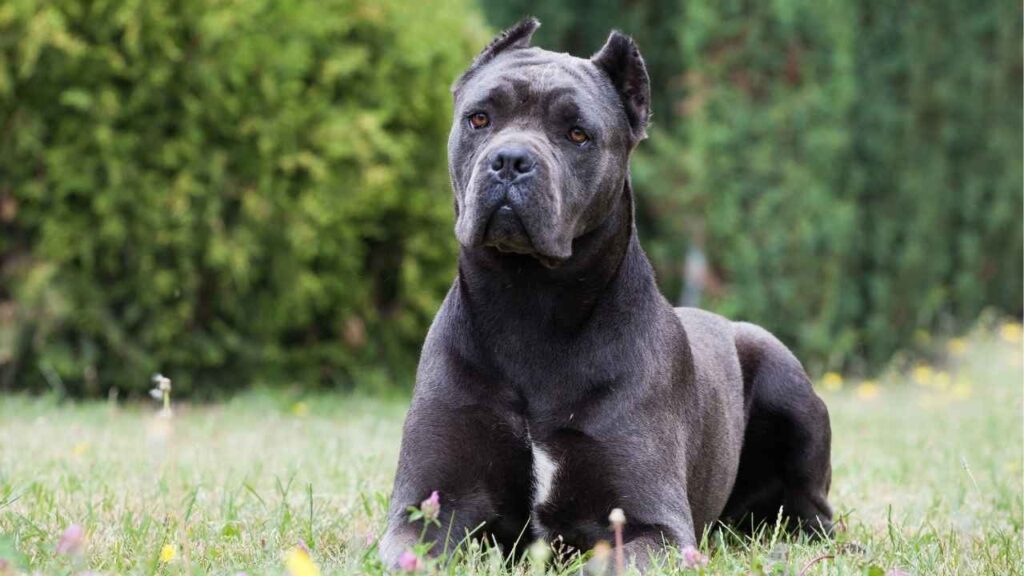
With their broad heads, expressive faces, and well-defined muscles, Cani Corsi have a commanding presence. While both breeds are large, the Cane Corso tends to be heavier and more muscular, exuding strength and athleticism.
Temperament and Personality Traits
When it comes to temperament, the Akita is a loyal and protective breed known for its deep devotion to its family and natural suspicion of strangers. These dogs are typically calm and quiet, but their independent and strong-willed nature can make them challenging for inexperienced owners. Akitas are often one-family dogs who thrive in homes without young children or other pets, especially dogs of the same sex.
While not overly playful, they do enjoy bonding with their inner circle and may engage in “mouthing” behaviour—gently carrying objects in their mouths. They are excellent watchdogs who alert their families to unusual activity but aren’t excessive barkers. However, their tendency to be territorial and their aloof demeanor require early socialization and firm, consistent training.
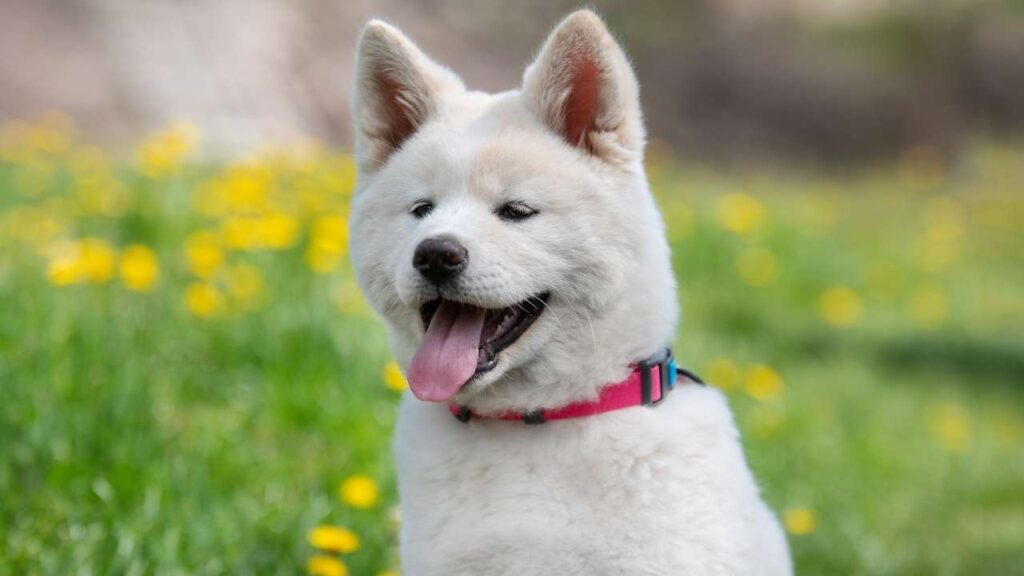
Britannica states that the Cane Corso, bred as a guardian and protector, shares similar traits of wariness toward strangers and other animals. These dogs are powerful, independent, and serious by nature, though they form strong, affectionate bonds with their families. With proper socialization and training, Cane Corsos can be gentle and even patient with children, but due to their size and strength, supervision is essential.
Like the Akita, they are not ideal for first-time dog owners or households with multiple dogs. Cane Corsos are average in energy and not typically toy-driven, but they excel as watchdogs and protection dogs. Their bark is deep and commanding, sufficient to startle any intruder, making them both effective guardians and devoted companions when well-managed.
Bite Strength and Behavioral Characteristics
Akita is a powerful breed with a bite force estimated between 350 to 400 PSI, making them capable of inflicting serious damage if not properly trained and socialized. Bred for hunting and guarding in Japan, Akitas are naturally protective, territorial, and intensely loyal to their family.
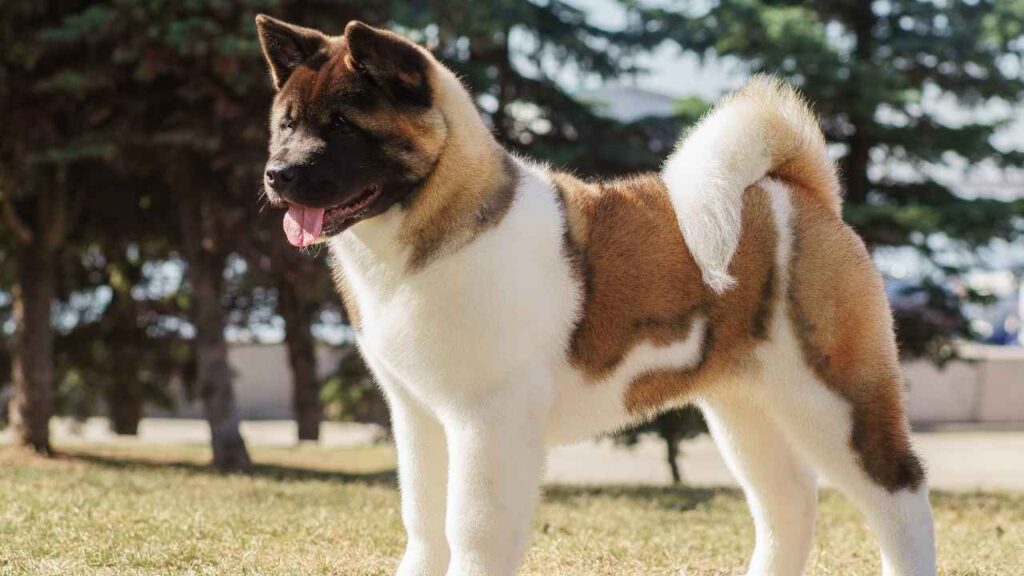
Their independent nature and tendency to be aloof with strangers can make them unpredictable in unfamiliar situations, especially around children or other animals.
Akitas are known to be aggressive toward other dogs, particularly those of the same sex, and their strong prey drive can pose a threat to smaller pets like cats. These dogs thrive as solo pets and require an experienced, confident owner who can establish firm boundaries and provide consistent training.
The Cane Corso, on the other hand, has an even more formidable bite force of approximately 700 PSI, one of the strongest among all dog breeds. Descended from ancient Molossian war dogs, the Cane Corso was bred for guarding, hunting large game, and battlefield roles. As a result, they are vigilant, powerful, and assertive, with a natural instinct to protect their home and family.
While not inherently aggressive, a Cane Corso that lacks proper leadership and early socialization may become overprotective or unmanageable. Their massive size, muscular build, and strong-willed personality demand an experienced handler who can maintain control. When well-trained, Cane Corsos are fiercely loyal, eager to please, and composed, but without guidance, their protective instincts can turn problematic in high-stress or poorly managed environments.
Health Conditions and Lifespan
The Akita typically lives between 10 to 14 years, with a lifespan influenced by genetics and overall care. Though breeders aim to reduce hereditary risks, Akitas are still prone to several health issues. Hip dysplasia is common and can lead to joint pain and mobility problems. The breed is also susceptible to gastric dilatation-volvulus (bloat), a life-threatening condition caused by rapid eating.
As noted by PetMD, hypothyroidism, progressive retinal atrophy (PRA), and sebaceous adenitis (SA)—an autoimmune skin disorder—are other conditions seen in the breed. Akitas may also suffer from autoimmune diseases and Von Willebrand disease, a clotting disorder. Regular veterinary care and genetic screening are essential for managing their health.
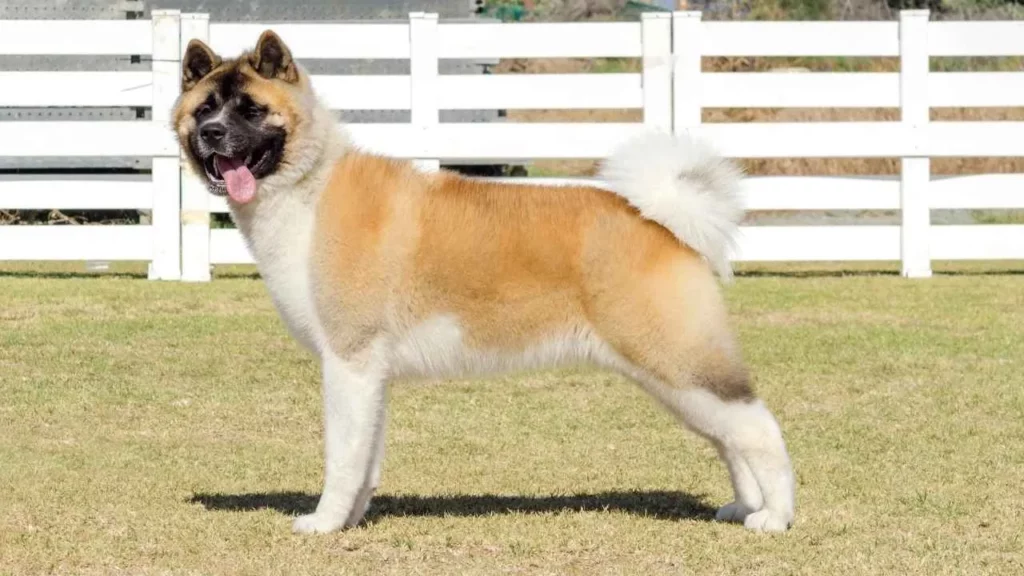
The Cane Corso has a slightly shorter lifespan of 9 to 12 years, which is typical for giant breeds. Like the Akita, hip dysplasia and bloat are common concerns due to their size and deep chests. The breed is also prone to ectropion, where eyelids turn inward and cause eye irritation, and idiopathic epilepsy, which can lead to seizures in younger dogs, according to AKC.

Although Cane Corsos are robust and adaptable to various climates, they still benefit from responsible breeding practices and regular health screenings to help mitigate these inherited conditions and extend their quality of life.
Grooming Needs and Allergy Considerations
The Akita requires consistent grooming due to its dense double coat, which sheds year-round and blows out seasonally in large clumps. Daily brushing, especially during heavy shedding periods, helps control fur loss and keeps the coat healthy. Akitas generally need a bath only once every few months unless they get dirty, as frequent bathing can dry out their skin.
Routine care—like ear cleaning, nail trimming, and dental hygiene—is important. While Akitas are known for their clean, catlike grooming habits, they can still trigger allergies due to high dander production and seasonal shedding. Their grooming behavior may also spread allergens like saliva on their fur, increasing the risk of reactions in sensitive individuals.
The Cane Corso has simpler grooming needs thanks to its short, coarse double coat. A weekly brushing is usually sufficient throughout the year, with more frequent sessions during spring shedding. Bathing is only needed occasionally, and the breed doesn’t require trims or specialized cuts. Like all dogs, regular ear checks, nail trims, and dental care are necessary for overall health.
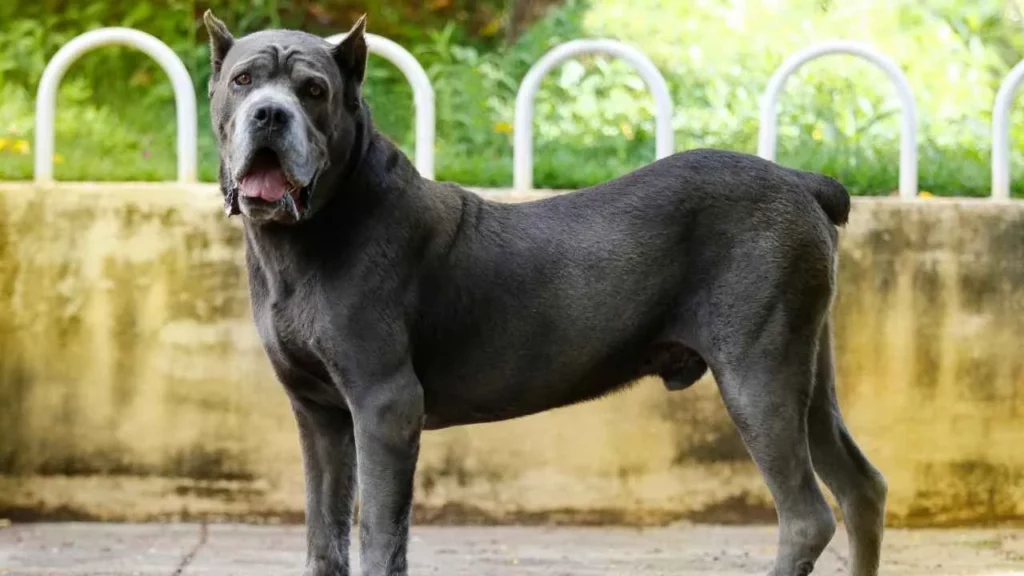
While the Cane Corso sheds moderately year-round, it can still release enough dander to affect allergy-prone individuals. Their shedding increases slightly with seasonal changes, and despite their shorter coat, they are not considered hypoallergenic.
Conclusion
Choosing between the Akita and the Cane Corso comes down to lifestyle, experience, and what kind of companion you’re looking for. Both breeds are powerful and protective and require firm leadership, consistent training, and early socialization.
If you have kids, a landlord with breed restrictions, or limited experience with strong-willed dogs, neither breed may be ideal. Like Pitbulls, Boxers, or Presa Canarios, Akitas and Corsos often face public misunderstanding and breed bans.
Make sure to search for reputable breeders, visit in person, and gather all the details before choosing a puppy. Watch videos, read up on breed characteristics, and understand their long-term needs. The cost—both financial and emotional—is significant.
In general, the Akita suits quieter homes and experienced owners who value independence and minimal fuss. The Cane Corso thrives in active households that can provide structure and purpose. If you’re ready to spend time, offer attention, and commit to the longer haul, either dog can bring loyalty, strength, and deep love into your life. Just be sure to do your homework—these aren’t dogs to get on impulse but powerful companions for those prepared to lead with both heart and mind.


